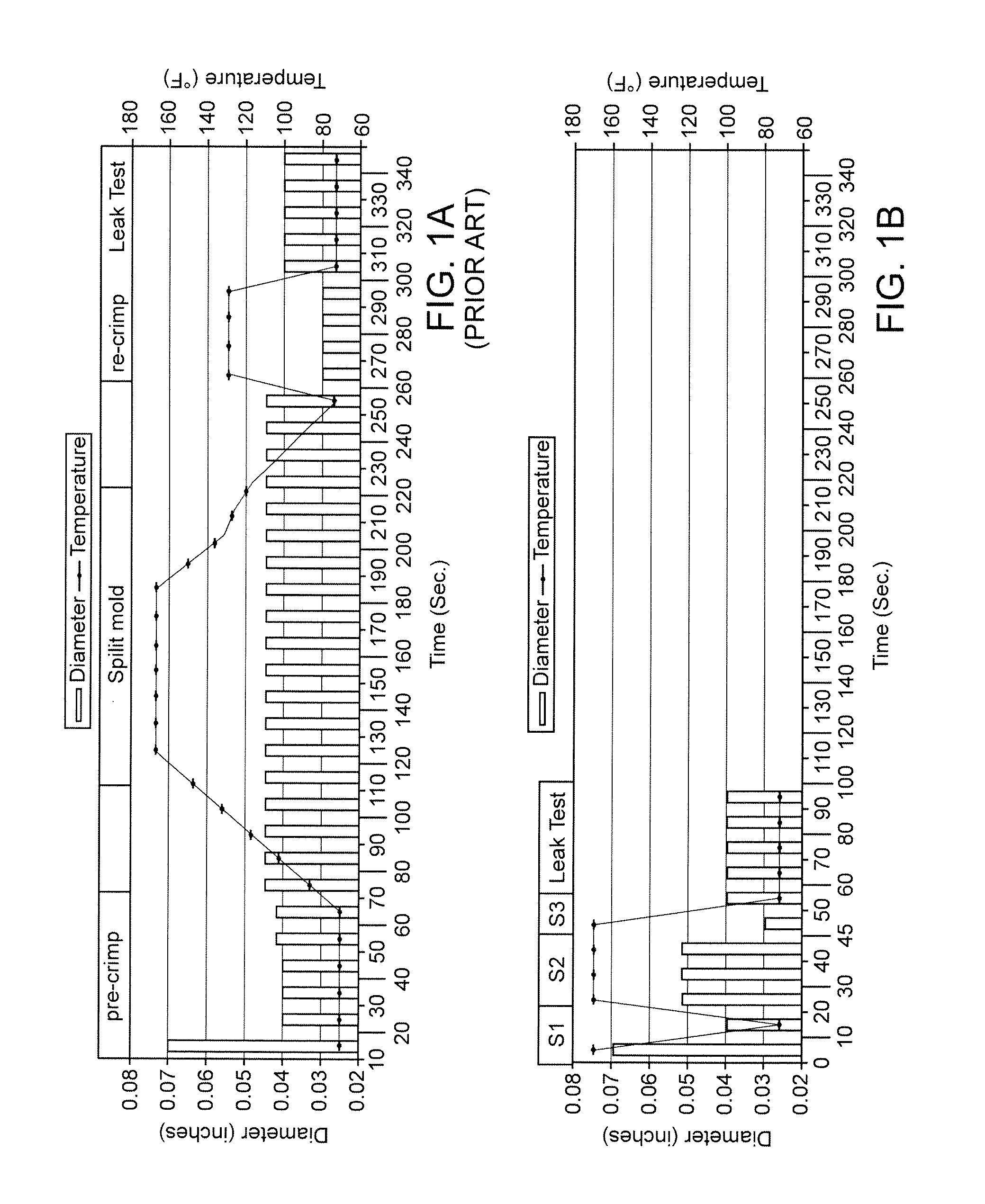Stent crimping methods
a technology of crimping and stents, applied in the field of drugeluting medical devices, can solve the problems of time-consuming process, and achieve the effects of reducing processing time, reducing dislodgment force, and fewer steps
- Summary
- Abstract
- Description
- Claims
- Application Information
AI Technical Summary
Benefits of technology
Problems solved by technology
Method used
Image
Examples
Embodiment Construction
[0030]For purposes of this disclosure, a “stent” means an open-walled tubular body of interconnected, spaced-apart struts with gaps between adjacent stent struts. The struts may form rings having a serpentine wave pattern of opposed turns and which are longitudinally spaced apart and connected by links. The stent, when crimped to a balloon undergoes a process of plastic deformation from a starting or manufactured diameter to a final or crimped diameter. The stent is expanded to a deployed diameter by being plastically deformed by expansion of the balloon.
[0031]A stent having a pattern as described in U.S. Pat. Nos. 6,312,459 or 179,867 may have a starting, or manufactured outer surface diameter of 0.07 in. The stent is made from a metal or metal alloy. The stent may be crimped to a non-compliant balloon made from PEBAX material. When deployed the stent has a nominal 3 mm (0.118 in) outer diameter and 18 mm (0.708 in) length. For purposes of this disclosure, this stent will be referr...
PUM
| Property | Measurement | Unit |
|---|---|---|
| pressure | aaaaa | aaaaa |
| temperature | aaaaa | aaaaa |
| temperature | aaaaa | aaaaa |
Abstract
Description
Claims
Application Information
 Login to View More
Login to View More - Generate Ideas
- Intellectual Property
- Life Sciences
- Materials
- Tech Scout
- Unparalleled Data Quality
- Higher Quality Content
- 60% Fewer Hallucinations
Browse by: Latest US Patents, China's latest patents, Technical Efficacy Thesaurus, Application Domain, Technology Topic, Popular Technical Reports.
© 2025 PatSnap. All rights reserved.Legal|Privacy policy|Modern Slavery Act Transparency Statement|Sitemap|About US| Contact US: help@patsnap.com


